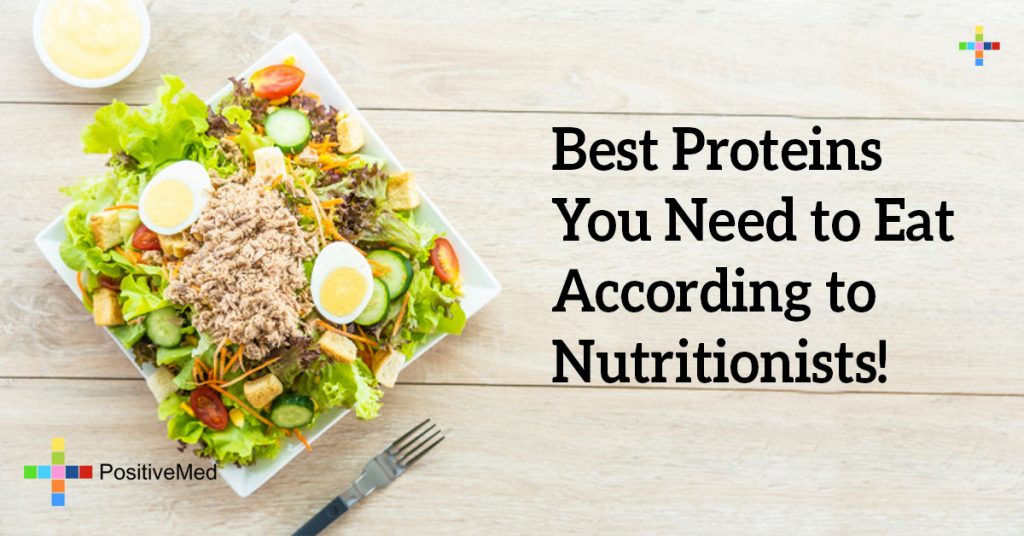
Best Proteins You Need to Eat According to Nutritionists!
Almost everyone knows that eating protein in some form is a must for maintaining good health. Even vegetarians freely admit to having to especially watch their diets by supplementing their protein intake with supplements and larger portions of legumes and nuts.
According to many health practitioners, it all depends on one’s body type and metabolic makeup. What is food for one person, sometimes turns into poison for someone else. That being said, let’s examine what are some of the best kinds of proteins, their respective values and some possible exceptions.
1. Fish: An excellent source of omega-3 fatty acids that help promote heart health and stabilize moods, wild salmon and wild tuna are the best choices in fish. A 3-ounce serving of salmon scores you 17 grams of protein containing 6.5 grams of unsaturated fatty acids. Tuna becomes a virtual protein powerhouse, with 25 grams of protein found in 3 ounces of fish.
2. Low-fat Greek yogurt: Containing 17 grams of protein per serving, be certain to either get plain yogurt or make allowances for any sugar if the yogurt contains fruit.
3. Cheese: Long maligned along with the egg, cheese is truly one of the best sources of protein on the planet.
4. Eggs: According to one well-known nutritionist, eggs rank the highest in terms of their “biological value.” The biological value being the proportion of protein that helps maintain one’s protein and tissue needs in the body.
According to the British Journal of Medicine, you can safely eat an egg daily without increasing your risk for heart disease or stroke. Once maligned by many in the medical establishment and the food industry, the noble but powerful little egg, along with cheese, are making a comeback in health circles.
5. Nuts: Rich in healthy unsaturated fatty acids, people who daily eat a handful of nuts are 20 percent less likely to die from disease than those who don’t eat nuts, according to a 2013 New England Journal of Medicine publication.
Some Exceptions To The Rule:
Most plant-based sources of proteins such as legumes and certain greens only contain trace amounts of the nine essential amino acids needed to sustain health. Therefore, a lot of bean-eating has to take place to produce significant protein amounts.
High purine foods such as pork, beef and certain seafood such as shrimp, are not the indicated way to go for some people according to their health dispositions. For instance, those suffering from gout, thyroid conditions, arthritis and kidney disease would do better choosing foods not so high in purine such as fish.
Likewise, some sources of food are rich in B vitamins but are not iron-rich. Other foods have minimal amounts of protein while being rich in other essential nutrients. It becomes a balancing act, so choose wisely.
Because freshly caught fish are considered by many as being mercury-laden, it’s best to vary the species of fish and the waters from which they were caught–for instance, Atlantic salmon versus Pacific salmon.
Leafy greens such as kale, collard greens and spinach are generously endowed with protein amounts; however, only by combining with beans and legumes does one get the complete nine essential amino acids.
Which food of the above listed makes up the larger proportion of your daily eating regimen? Are you eating enough of it?





